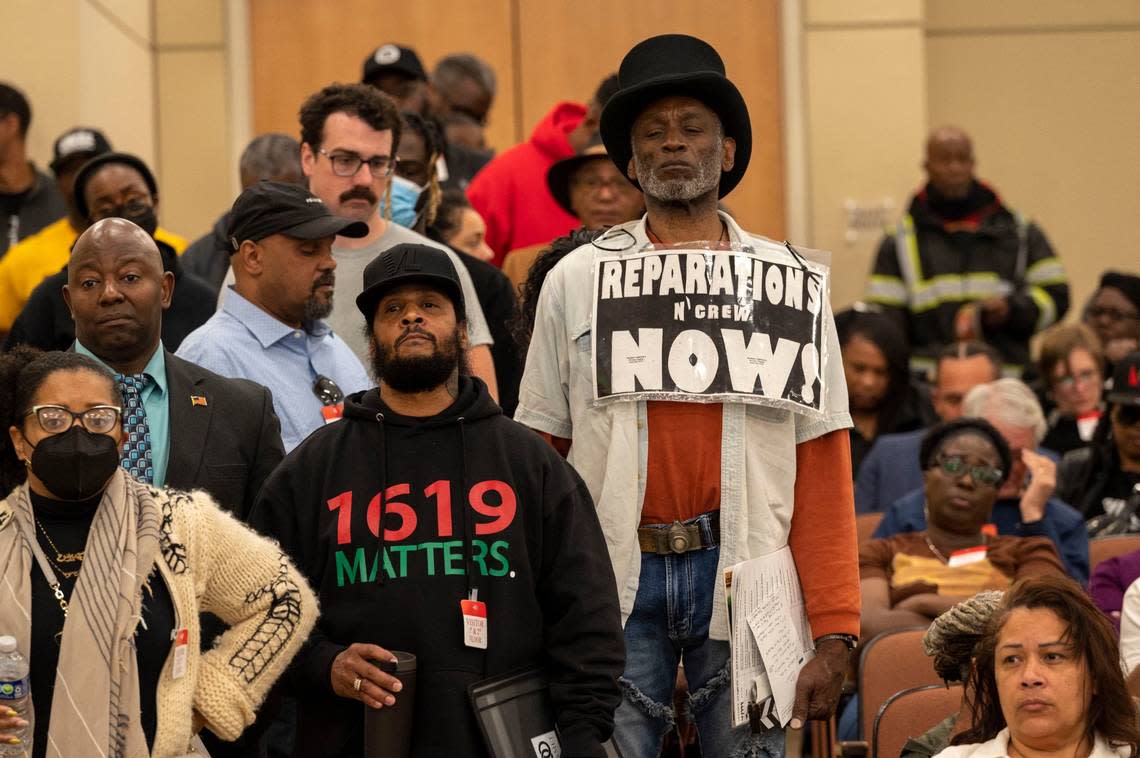California to spend millions on reparations programs. Do Black advocates think it’s enough?

- Oops!Something went wrong.Please try again later.
- Oops!Something went wrong.Please try again later.
In the Spotlight is a Sacramento Bee series that digs into the high-profile local issues that readers care most about. Story idea? Email metro@sacbee.com.
Black advocates are in agreement following last weekend’s announcement that the state will earmark $12 million over the next year to launch reparations — the money is a good start, but not nearly enough.
“That it is a lowball amount, especially given the amount of harm that was done to Black people in this state and for the amount of time that it was done,” said Kavon Ward, co-founder of Where Is My Land, a group that advocates for Black people trying to reclaim lost and stolen land.
The $12 million comes as part of the budget agreement for the 2024-25 fiscal year between Gov. Gavin Newsom and Democratic leaders.
Funding will help implement reparations bills endorsed by the California Legislative Black Caucus. This year, the caucus introduced a first-in-the-nation reparations package with bills spanning education, criminal justice, business and health care. Lawmakers face an Aug. 31 deadline to pass legislation to Newsom.
Money to back these bills is particularly important given the state’s budget circumstances, said James Woodson, executive director of the California Black Power Network. It comes with the state having to close a roughly $47 billion shortfall.
Democratic Assemblywoman Lori Wilson, the chair of the Black Caucus, called the funding a “win” following the budget agreement announcement.
“In these types of environments, Black folks tend to get overlooked,” Woodson said “But, we were glad to see that there was this down payment made toward reparations.”
Still, Woodson said the funding should be the start of “many rounds of investment to repair harm.”
“Our position has always been that the harm caused was not done overnight, and so the solutions and the investments won’t happen overnight as well,” he said.
The efforts around reparations have gained momentum in recent years, particularly in California. It became the first state in the country to form a reparations task force in 2021. Last year, the task force approved a multi-year study with more than 100 recommendations for how to undo the centuries of racism toward Black people in California.
Even then, Ward said, California still has a while to go and should “do better.”
None of the caucus’ endorsed reparations bills involve direct cash payments to descendants of enslaved people. And in Ward’s opinion, $12 million is what should be paid to one individual.
“When it comes to them actually putting their money where their mouth is, I think that they’re falling short,” she said.


